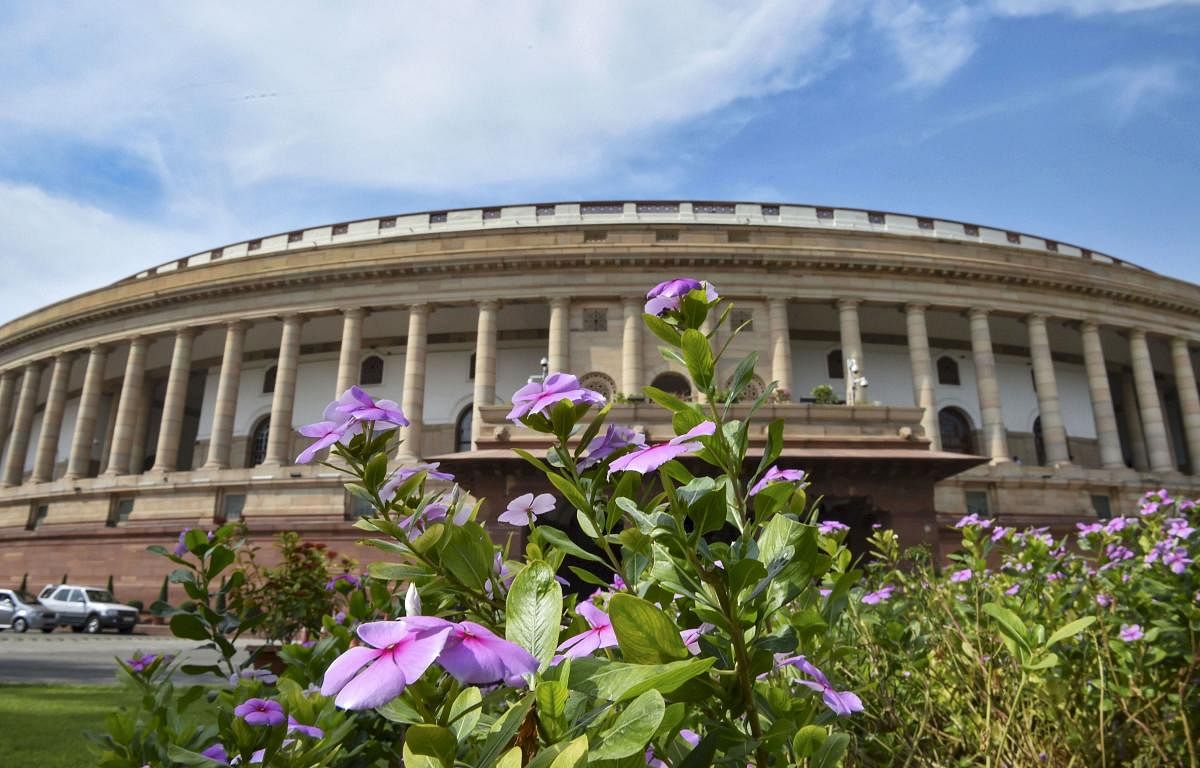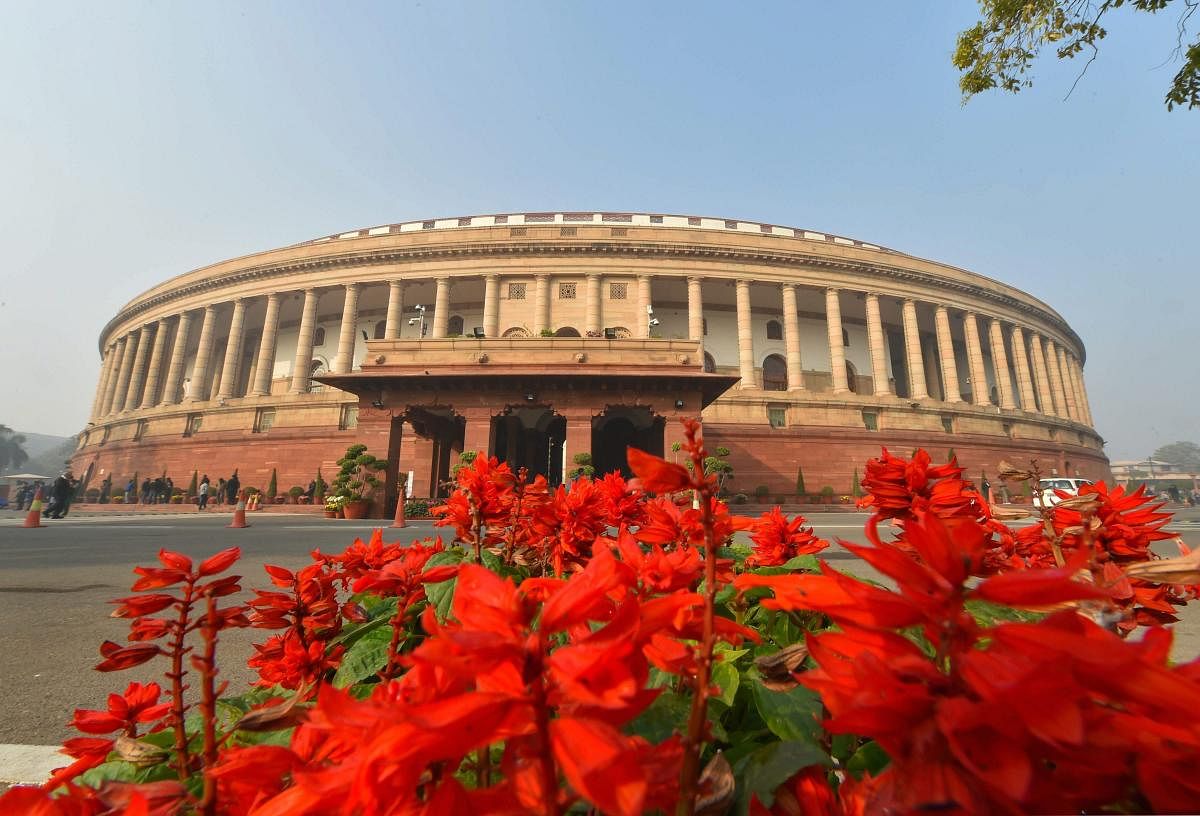

Parliament seems to be slowly ebbing away from the nation’s consciousness. No one talks about it these days. The civil society has almost forgotten it. Of course we are grappling with the pandemic and therefore nothing else occupies our minds at this moment. However, a closer look at the developments of the past few years would reveal that the de-emphasis of Parliament as the apex legislative body of the nation was already under way. The pandemic has only accelerated that process.
Parliament has been at the centre of India’s political life. It is not merely the highest lawmaking body. It is the fulcrum of the democratic system and the symbol of the sovereignty of people. They naturally look towards this institution for reshaping their life and their worldview. The debates in Parliament used to be the major talking points among citizens. The scintillating debates in both chambers used to enthral everyone; visiting Parliament those days was an unforgettable experience.
There was a time when the countrymen would eagerly look forward to what Parliament had to say on, say, foreign policy, industrial policy and many other vital issues affecting people's life. But no longer. In fact, there has been a steady erosion in the centrality of this institution in our political life during the past few years.
We don’t have to look far for the reasons for this. Parliament and its systems need to be nurtured religiously and a major responsibility for this lies on the shoulders of the government. If the government does not make constant efforts to strengthen its systems and protect its integrity, only the concrete structure will remain, there will be no Parliament worth the name.
A brute majority for a party and a strong and popular leader can make Parliament less important. Under such circumstances, the classic theory of the executive accountability to Parliament would stand on its head.
The importance of Parliament diminishes under a variety of situations. Traditionally, Indian Parliament meets in three sessions in a year — the budget session, the monsoon session and the winter session. This has never been departed from. The idea behind these three sessions is that Parliament should meet as often as possible to deal with issues affecting the people of the country.
Last year, the winter session was scrapped. The ostensible reason was the Covid-19 pandemic. This year, the budget session was drastically cut short. This session used to start in the third week of February and end in the first week of May.
Now the tendency of governments is to make the session as short as possible. The result is that many vital issues do not ever come before Parliament. Even debates have been reduced to a formality. Bills are brought into the House at the last minute. Rules which stipulate two days’ notice are waived by the presiding officers and these are passed usually after a brief debate. Serious Bills are brought and passed in a hurry without the members getting any time to study them in detail.
No space for debates
There are many examples. The Bills for scrapping Article 370 and downgrading Kashmir into union territories were introduced, discussed and passed the same day. Neither the members of the treasury benches nor the members of the Opposition got any time to study them. In fact, as per the time-honoured practice, these Bills could have been referred to the standing committee or a select committee for detailed scrutiny, which would have resulted in far better laws.
Another example is the Farm Bills, which were brought in for replacing the ordinances and passed in a great hurry. No amendment suggested by the members was accepted by the government and these Bills were passed in the form in which they were introduced. But later, when the agitation by farmers created a tough situation, the government offered to make more or less the same amendments to those laws which were rejected by it earlier in Parliament. Now it remains frozen for two years.
Then why were those Bills passed in Parliament in such a great hurry?
Of course, a brute majority need not always be antithetical to a vibrant and independent-minded Parliament.
In the 1950s and 1960s, the then ruling party had a formidable majority in both Houses. But the Indian Parliament had reached Himalayan heights of its glory. Jawaharlal Nehru, the first prime minister, nurtured the parliamentary system with great care, commitment and farsightedness. Parliament declined essentially because the new generation failed to internalise in full measure the democratic impulses.
No one is sure when Parliament will meet next. There are many parliaments in the world which have met during the pandemic. If they could meet why not we? No definite answer is available.
There is in fact a demand for virtual meetings of parliamentary committees, which have remained more or less non-functional. But the presiding officers have rejected this demand on the grounds that it will compromise the confidentiality of the committees.
Virtual meetings
It is not correct to say that confidentiality will be compromised if virtual meetings are held. It is being tried in many parliaments in the world. Committees, being the principal oversight mechanism of Parliament, are supposed to function almost throughout the year. They scrutinise the whole gamut of activities of the government and report to the House. Parliament ensures government’s accountability through its committees. If they are allowed to become non-functional, the parliamentary system itself will collapse.
Parliament always enacted qualitatively better laws whenever there was scrutiny by the committees. The speaker of the Fourteenth Lok Sabha, the late Somnath Chatterjee, had made it a policy to refer most of Bills to the committees for detailed scrutiny which ensured better quality of laws.
The country is, no doubt, facing an unprecedented crisis due to a terrible pandemic. But important issues have arisen from the way the crisis has been dealt with by the authorities. Questions need to be asked and answers need to be given. It can be done only in Parliament and its committees.
Parliament needs to debate these issues urgently. Deliberations in committees would have certainly helped the government devise better strategies to deal with the pandemic. Parliamentarians have a perspective on public issues which the sequacious bureaucrats lack. This is more than evident in the management of the Covid crisis.
Involvement of Parliament and its instrumentalities in the strategising process would have produced much better result.
(P D T Achary is Former Secretary General, Lok Sabha)